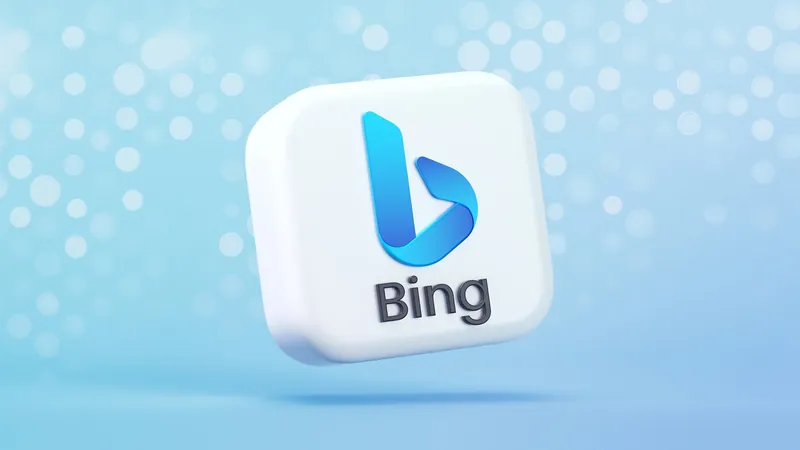
Microsoft Bing's 'Google' Search Trick: Are Users Being Deceived?
2025-01-06
Author: Kai
Introduction
In a controversial move, Microsoft Bing has introduced what many are calling a misleading search page that mimics Google's interface when users search for 'Google'. This tactic has sparked debate over the ethics of such practices in the tech industry.
The Deceptive Interface
When users perform a search for "Google" on Bing, they are met with a visually striking page that resembles the very search engine they're looking for. Instead of the standard Bing layout, users encounter a page adorned with a Google-esque doodle and an additional search field directly beneath it, creating an almost seamless imitation of Google’s interface. This design choice has led some users to feel that they are, in fact, navigating Google rather than Bing.
What’s more alarming is that the rest of the content on this page appears to promote Google's services, reinforcing the illusion that users are on the competing platform. The only indications that they are actually on Bing are the URL displaying "bing.com" in the address bar and some promotional text for Microsoft Bing located beneath the search bar.
User Reactions
In an online discussion, a user identified as Sepher expressed his concerns on Twitter, stating, "When you search for 'Google' on Bing, you are presented with a fake Google-esque search page. Microsoft is misleading people into thinking that they are on another search engine by not properly displaying the search query in this search field."
Manipulation of User Experience
Adding to the layers of deception, this custom Google-like page is automatically scrolled down to obscure Bing's typical header image. This manipulation further distances users from realizing they are operating within Bing’s ecosystem.
Similar Tactics for Other Search Engines
Interestingly, this controversial design is not exclusive to searches for Google. Tests conducted by tech-focused platform BleepingComputer reveal that Bing also generates a similar page for Yandex, the largest search engine in Russia. However, notable competitors such as DuckDuckGo, Brave Search, and Start Page do not receive this special treatment on Bing's platform.
Ethical Implications
While Microsoft has yet to issue an official statement addressing these concerns, the reaction from users and the broader tech community raises questions about the ethical implications of such tactics. Is Microsoft’s approach clever marketing or a deceptive ploy? Either way, it serves as a reminder of how easily users can be misled in the digital age.
Conclusion
As discussions around search engine practices continue to evolve, this situation may prompt questions of regulatory scrutiny over such design tactics and their impact on consumer trust. Will Microsoft adjust its strategy in light of growing criticism, or will this become a standard practice? Only time will tell.


 Brasil (PT)
Brasil (PT)
 Canada (EN)
Canada (EN)
 Chile (ES)
Chile (ES)
 Česko (CS)
Česko (CS)
 대한민국 (KO)
대한민국 (KO)
 España (ES)
España (ES)
 France (FR)
France (FR)
 Hong Kong (EN)
Hong Kong (EN)
 Italia (IT)
Italia (IT)
 日本 (JA)
日本 (JA)
 Magyarország (HU)
Magyarország (HU)
 Norge (NO)
Norge (NO)
 Polska (PL)
Polska (PL)
 Schweiz (DE)
Schweiz (DE)
 Singapore (EN)
Singapore (EN)
 Sverige (SV)
Sverige (SV)
 Suomi (FI)
Suomi (FI)
 Türkiye (TR)
Türkiye (TR)
 الإمارات العربية المتحدة (AR)
الإمارات العربية المتحدة (AR)